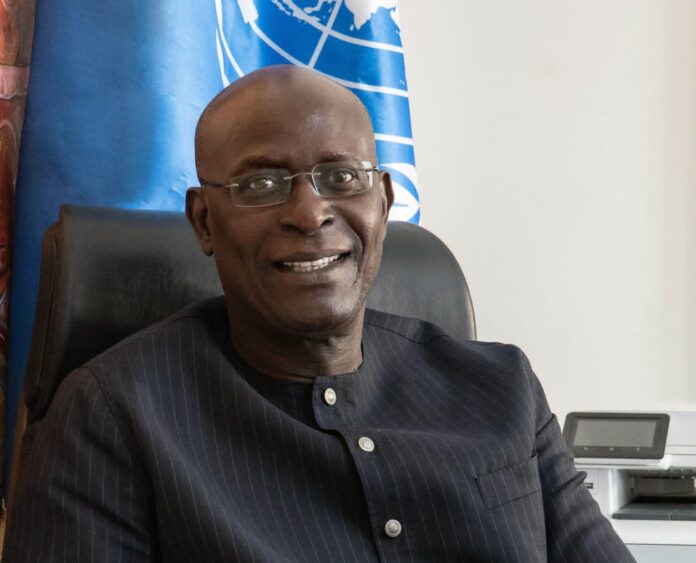No cultural practice, tradition, economic, or social pressure can justify the suffering endured by millions of women and girls. Our role is to challenge these harmful narratives.
Gender inequality and violence against women remain among the greatest challenges to sustainable development, not just in Nigeria but globally. According to UN Women, globally, an estimated 736 million women, almost one in three have been subjected to physical and, or sexual intimate partner violence, non-partner sexual violence, or both at least once in their life, which represents 30 per cent of women aged 15 and older. This figure does not include sexual harassment.
Violence against women and girls is a violation of human rights. It undermines the principles of equality, dignity, and respect. This violence takes many forms—physical, emotional, sexual, and economic; and occurs in every part of the world, including Nigeria. From intimate partner violence to harmful traditional practices such as female genital mutilation, trafficking, exploitation, sexual harassment, and assault, the pervasive nature of gender-based violence reflects deep-rooted societal inequalities.
Reports have also established that women who have experienced violence are more likely to suffer from depression, and anxiety disorders with long-lasting dire consequences. The United Nations further captured the situation of gender-based violence globally: “For at least 51,100 women in 2023, the cycle of gender-based violence ended with one final and brutal act—their murder by partners and family members. That means a woman was killed every 10 minutes.”
In Nigeria, violence and harmful practices against women and girls happen every day, and most of the time they are not reported. The Nigerian Demographic and Health Survey in 2018 found that 9 percent of women aged 15 to 49 had suffered sexual assault at least once in their lifetime and 31% had experienced physical violence. Restrictions and implications from the COVID-19 pandemic exacerbated the gender-based violence (GBV) in the nation.
One of the global initiatives that consistently puts a spotlight on the issue of gender-based violence is the 16 Days of Activism against gender-based violence which starts on 25 November, the International Day For The Elimination Of Violence Against Women and ends on 10 December, the Human Rights Day. This period serves as a crucial platform to raise awareness, mobilize action, and demand an end to all forms of violence against women and girls.
During these 16 Days of Activism, let us not only reflect on the stories of pain but also celebrate the strength, resilience, and courage of women and girls in Nigeria and the rest of the world. Let us honor their voices and commit to a future free from violence. It is a time to reflect on our progress and acknowledge the work that still lies ahead.
“No Excuse. UNiTE to End Violence against Women” is this year’s theme, and according to the UN Secretary-General Antonio Guterres, it means standing with activists around the world who are calling for change and supporting survivors of violence. It is a powerful call to action. It asserts our collective responsibility to ensure that no woman, or girl is subjected to violence in their homes, communities, or workplaces. Violence in any form is never justified, acceptable, or excusable.
It is critical that we unite in our efforts to eliminate violence in all its forms. We must collaborate with governments, civil society, international organizations, and the private sector, to address the root causes of violence. We need to confront the harmful attitudes, stereotypes, and discriminatory norms that perpetuate a culture of violence. It is essential to break the silence and ensure that survivors receive the support and protection they need to rebuild their lives.
There is no excuse for violence against women. No cultural practice, tradition, economic, or social pressure can justify the suffering endured by millions of women and girls. Our role is to challenge these harmful narratives. It is our collective responsibility to ensure that every woman and girl can live free from fear of violence and discrimination. We must create safer environments where women and girls can access education, work, health services, and lead fulfilling lives without fear.
As Nigeria joins the rest of the world to observe the 16 Days of Activism Against Gender-Based Violence, I stand with the global community in declaring an urgent truth: There is no excuse for violence against women and girls. This is not a matter for debate; it is a call to immediate action. The United Nations in Nigeria stands firmly against violence in all its forms. We are resolute in our commitment to supporting the Nigerian government and all stakeholders to end gender-based violence.
Our work in Nigeria focuses on strengthening legal frameworks, improving access to justice, and creating awareness to change mindsets and behaviours.
But we cannot do this alone. We need support from everyone: community leaders, religious institutions, educators, and individuals. It is vital to engage men and boys as partners in this fight, encouraging them to speak out against violence, challenge harmful gender norms, and foster respect and equality in their homes and communities.
We must also ensure that survivors of violence have access to the services and resources they need to heal and rebuild their lives. This includes healthcare, legal aid, and counseling services. It is essential to create spaces where survivors can share their stories without fear of retaliation and where their dignity is preserved.
Together, we can unlock the full potential of every Nigerian and build a future where gender equality is not just an aspiration but a reality.
There is no excuse for violence against women. Together, we can make a difference. Together, we can create a world free from violence and discrimination. A world where women can live with diginity and respect.
Mohammed M. Fall, is the United Nations Resident and Humanitarian Coordinator in Nigeria. He writes from Abuja.




